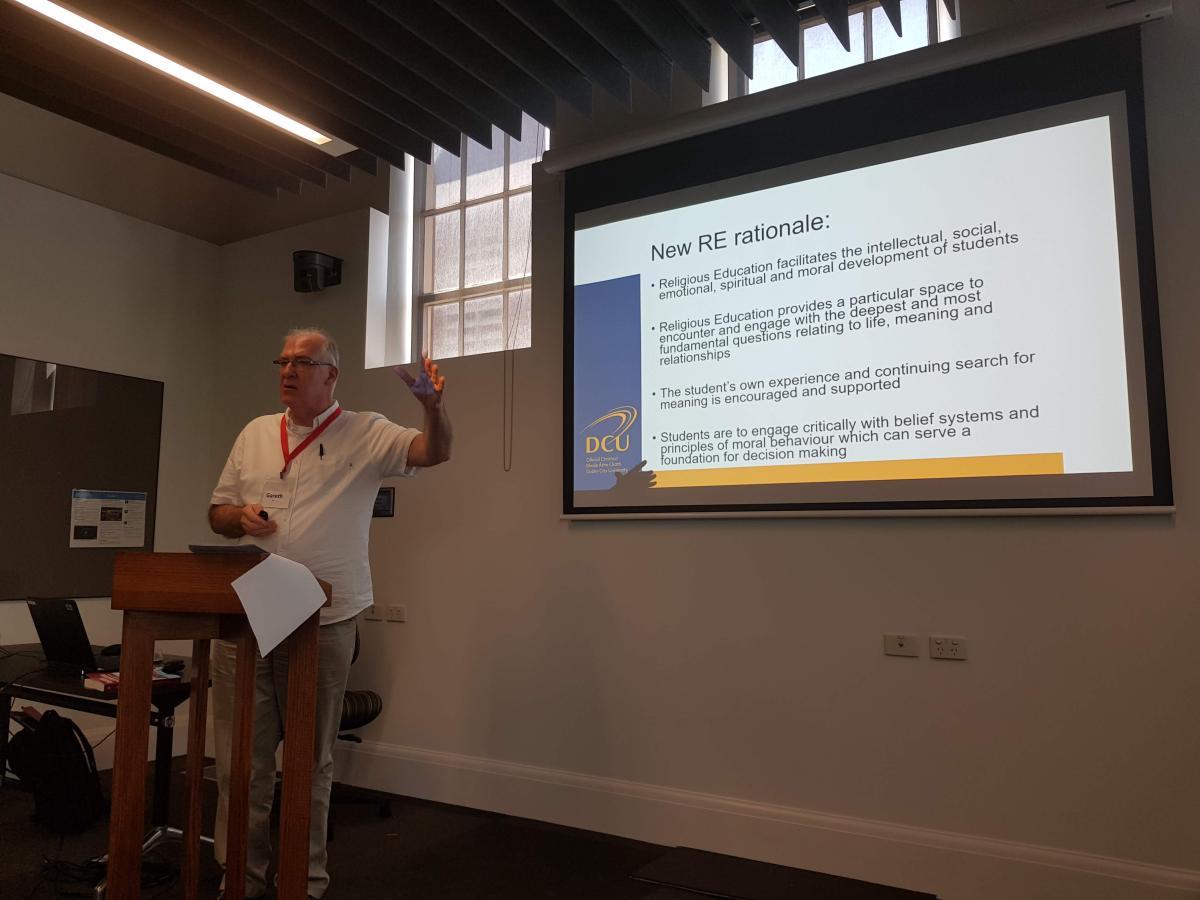

Revitalising Religious Education
Dr. Gareth Byrne, Director of Mater Dei Centre for Catholic Education (MDCCE), presented on second-level Religious Education at the 2nd International Conference on Catholic Religious Education in School, in Melbourne on Thursday 13 Feb 2020.
Dr. Byrne’s title was, ‘Revitalising Religious Education in Second-level Schools in Ireland’. The presentation took in the changing landscape in Ireland today focusing on the development over the last two years, and rolling out this academic year, of the new specification for Religious Education mandated under the new Framework for Junior Cycle (12-15 year-olds).
Emphasising the requirement that students be led through a path of enquiry, exploration, reflection and action, Dr. Byrne saw great possibilities here for engaging young people, whatever their belief system, with the big questions and with the significant relationships in their lives, including with God.
Starting from their own tradition and perspective, young people are encouraged in this new approach to Religious Education to reflect on how people respond to depth questions, express their beliefs and find a way of living their values. Within the Catholic school, with Catholic pupils and others, religious educators can introduce material familiar in Church, from the person of Jesus Christ, the Creed, the Beatitudes, through sacramental celebration, to, for example, the reflection of Pope Francis in Laudato Si’ on care for the earth and all its peoples. The understanding of other religions, and of people who espouse other beliefs, are also to be engaged with – and for some students such perspectives will be their starting point. This is far more than learning about some religions. Pupils are asked to consider how what they are learning in class can be important for them in their own lives.
The international gathering was fascinated to hear about efforts in Ireland to provide a specification for Religious Education in post-primary schools that can be open to all, allowing for the variety of religious and other belief systems present in Irish society today, while allowing the Catholic school to build up its a community and contribute to the faith developments of young Catholics.
There was engaged interaction at the end of the presentation indicting great interest in the room as to how the initiative is progressing and what challenges might be present in bringing everyone into a new way of thinking about Religious Education.

